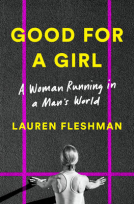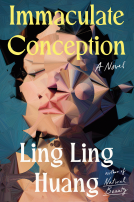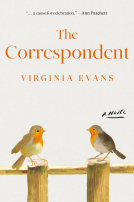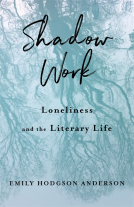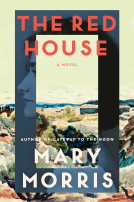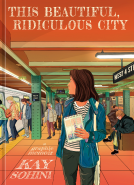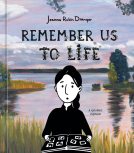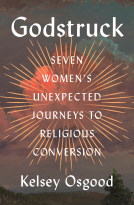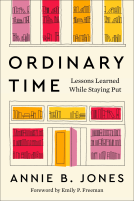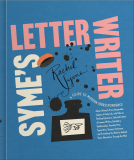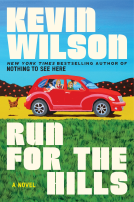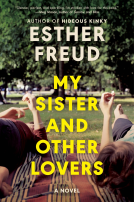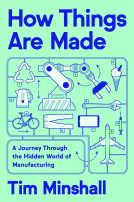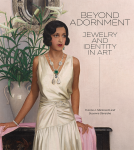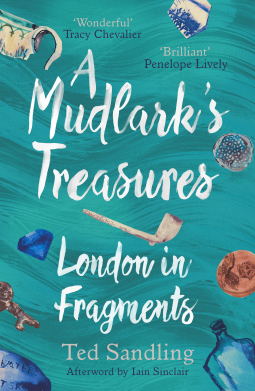
A Mudlark's Treasures
London in Fragments
by Ted Sandling
This title was previously available on NetGalley and is now archived.
Send NetGalley books directly to your Kindle or Kindle app
1
To read on a Kindle or Kindle app, please add kindle@netgalley.com as an approved email address to receive files in your Amazon account. Click here for step-by-step instructions.
2
Also find your Kindle email address within your Amazon account, and enter it here.
Pub Date Jun 22 2021 | Archive Date Jul 07 2021
Talking about this book? Use #AMudlarksTreasures #NetGalley. More hashtag tips!
Description
'A beautiful book.' Daily Mail
'Exhilaratingly curious.' Evening Standard
'Gripping.' Spectator
'Brilliant.' Penelope Lively
'Indefatigably researched.' Country Life
'Beautifully illustrated.' Monocle
Mudlarking, the act of searching the Thames foreshore for items of value, has a long tradition in England's capital. In the late 18th and 19th centuries, mudlarks were small boys grubbing a living from scrap. Today’s mudlarks unearth relics of the past from the banks of the Thames which tell stories of Londoners throughout history. From Roman tiles to elegant Georgian pottery, presented here are modern-day mudlark Ted Sandling's most evocative finds, gorgeously photographed. Together they create a mosaic of everyday London life through the centuries, touching on the journeys, pleasures, vices, industries, adornments and comforts of a world city. This unique and stunning book celebrates the beauty of small things, and makes sense of the intangible connection that found objects give us to the individuals who lost them.
Available Editions
| EDITION | Other Format |
| ISBN | 9780711263628 |
| PRICE | $16.00 (USD) |
| PAGES | 208 |
Featured Reviews
Who wouldn't be tickled to find treasure the Thames has left behind, along with layer upon layer of history and stories? Man, if they could talk. The author defines mudlarking and explains guidelines and etiquette. He also details his own wondrous experiences and finds, including his favourite.
Hundreds of years ago, the original mudlarkers searched for anything they could sell to make a bit of money. Now scouring is for pleasure and, I'm sure, can be a personal challenge. Tides amazingly can bring in Bronze Age swords and skulls, posy rings, pottery and coins. What can be learned from these finds is incredible! The author says he loves broken fragments...and I can understand that. Where else can you find a nineteenth century smoking pipe, bone toothbrush, delftware and a fossilized sea urchin in one day? In their time they may have been everyday objects but laden with meaning and mystique to us now.
This book is chock full of fascinating information from thrilling history about what was created when and how these objects impacted the world (the London Poor during Charles Dickens' time, Silk Road, chocolate making, Portuguese voyages, wine making) and personal anecdotes. I learned about the raspberry prunt, torpedo bottle, glass cullet, peruke, bisque dolls and porringers and the significance of brass pins. The explanation of sea glass is intriguing...my assumption was incorrect!
"Finding is a hunger." Yes! When we find treasures we tend to let our imaginations run. A fragment of pottery is surely a Roman urn and a glimmering stone must be a precious gem. The author's enthusiasm really captivated me. If you are enthralled by history and the unexpected, read this book! The only drawback is that my copy had no photos to correspond with the descriptions. I researched what I didn't know as I am a visual person.
My sincere thank you to Quarto Publishing Group - White Lion and NetGalley for the privilege of reading this absorbing book!
Super cool book about history and finding it. I loved all the little lessons in history he gave about all the objects.
 Claire G, Reviewer
Claire G, Reviewer
I received A Mudlark's Treasures as part of a NetGalley giveaway.
Mudlarking is the hobby of scouring the foreshores of the Thames at low tide for artifacts left over the course of thousands of years. In this volume, Ted Sandling examines some of the many finds he's collected over the years, in the process contextualizing the many histories that London contains.
This was a charming, quick, educational read. I love material culture, and the fascinating insights you can gain into the past simply by examining what's been left behind. As an American, I have little hope of actually mudlarking in London, but had I been born English, it would definitely be Extremely My Thing. In lieu of that, I love living vicariously through narratives like these.
 Rosemary S, Librarian
Rosemary S, Librarian
Mudlarking, for those who don’t know, is the hunt for archaeological treasures on the banks of the Thames. The center of commerce for centuries, the Thames has many secrets and on a good day, at low tide, treasure hunters may turn up either the mundane or the divine. From pipestems to button to Roman glassware, Sandling has found some amazing things in his mudlarking, and here he shares them with readers. With an introduction into the history of London and of Mudlarking, the author then segues into showing photos of some of his many finds, along with fascinating stories about their history. A must read for anyone who loves the past and the thrill of the hunt
Such a fun book! I love history and antiques and this book is one I plan to add to my shelves. Lots of great details about items and good historical background on London and the Thames. So glad I got to read this book and again - I plan on getting it when its released.
 Librarian 230799
Librarian 230799
Easily one of my favorite books of the year. Perfect for fans of travel writing, memoir, and nature writing.
Have you ever heard about the original mudlarks? They searched for treasures left behind in the Thames. The most traditional mudlarks were young boys in the 1800s who were looking to find anything that might bring them a bit of money. Now in the 21st century we still have mudlarks. Their finds tell the story of London’s history.
Readers will enjoy learning more about the finds of the mudlarks as they read this fascinating book. Things found include everything from clay pipes to tableware to wine bottlenecks to tea pots and so much more. These objects are fully described by the book’s author.
This title is packed with information and history. There is also an extensive bibliography. I wish that there had been photos but perhaps there will be in the published copy of this title.
Many thanks to NetGalley and the publisher for this title. All opinions are my own.
 Abby S, Reviewer
Abby S, Reviewer
Love the idea of Mudlarking treasure hunting for bits of history on the Thames.This was a fun book to learn history from learn about the arts of mudlarking.A book I will be gifting. #netgalley#quarto
 Stacey H, Reviewer
Stacey H, Reviewer
Fantastic! This is an absolute treasure of a book as are some of the discoveries made whilst mudlarking on the Thames.
This hobby of mudlarking is fascinating.
What lies within and below the Thames holds a mystery that mudlarks are hoping to reveal. It’s not only the find but the anticipation of the possibilities and the ‘life’ that each found object contains.
Ted Sandling opens this chest of treasures with wonderful photos, drawings and little stories of the past. I was able to experience the excitement of the find and the joy that is felt when an object is unearthed and a piece of history is unlocked.
This book is a treasure, highly recommended with thanks to NetGalley, Ted Sandling and Francis Lincoln Publishing for an ARC in exchange for an honest book review.
 Reviewer 823951
Reviewer 823951
Mudlarking, the act of searching the Thames foreshore for items of value, has a long tradition in England's capital. In the late 18th and 19th centuries, mudlarks were small boys grubbing a living from scrap. Today’s mudlarks unearth relics of the past from the banks of the Thames which tell stories of Londoners throughout history. From Roman tiles to elegant Georgian pottery, presented here are modern-day mudlark Ted Sandling's most evocative finds, gorgeously photographed. Together they create a mosaic of everyday London life through the centuries, touching on the journeys, pleasures, vices, industries, adornments and comforts of a world city. This unique and stunning book celebrates the beauty of small things, and makes sense of the intangible connection that found objects give us to the individuals who lost them. I fully recommend this book. It was a topic I knew little about and now find it fascinating!
mudlarker: a person who scavenges in river mud for objects of value
I couldn’t wait to read this and I’m so glad I did!!! Now I want to go on my own mudlarkjng excursion and I’m sure London would be the perfect spot!
 Karen T, Librarian
Karen T, Librarian
I had recently learned about mudlarking from the book “The Lost Apothecary”. Defined by Wikipedia, “A mudlark is someone who scavenges in river mud for items of value, a term used especially to describe those who scavenged this way in London during the late 18th and 19th centuries.” Sounds cool- I’m in!
I was drawn to this book because of the act of mudlarking, less to the history of London. That’s my fault, since it’s “London” is right there in the title, and at first I was not particularly interested in the famous city itself as much as the act of reaching into mud to pull out an artifact, which happens to occur most successfully by the River Thames. However, each small object contains multitudes, and history is exciting no matter where it takes place. Soon I felt like an honorary resident of London and felt connected to the objects and their British histories.
The author does not shy from the atrocities that are connected to the remnants found while mudlarking. For instance, a sugar cone mold sparks a discussion of slavery on sugar plantations. A button may well be from the dress of a prostitute who jumped to her death in the Thames.
It was a fun and easy read, with each object being discussed for about 2 pages. I get interrupted by my family constantly, so it was a great format to read, bit by bit.
I was given an ARC from Netgalley of this book in exchange for my honest review. I did not receive a copy with photos, and I am tempted to buy a hardcover version so that I can see the actual items being described. That being said, it was fun to imagine them in my mind.
What a unique, quaint, fascinating book this is. I feel like I learned so much about London's people, places and things. Also, the innocence of exploration and quests like those of mudlarks rejuvenated my spirit and made me look at the world through new eyes. Thank you Ted Sandling for this little treasure!
This was a compelling and thoroughly enjoyable read from start to finish with plenty of insight into a fascinating topic written in an accessible and eminently readable fashion. Not only it insightful and educational but it's also entertaining to read; the best of both worlds. What more could you ask for?
 Educator 680406
Educator 680406
I was unable to open the file on my device, but I will be seeking out this book on my own as it looks really interesting.
 Emma M, Reviewer
Emma M, Reviewer
I love to go beachcombing to find little pieces of history, from artifacts, fossils old buttons or bottles. It's all interesting to me. While beachcombing is accessible to the public, Mudlarking in the Thames is not. You need a permit to go Mudlarking and there are only a small section of society who are able to get a permit. This book is a good way to explore Mudlarking when you are unable to do it yourself.
This book describes how Mudlarking is done, how to find items and the provenance of the items. There was a very detailed description of the items however there were no photos or pictures. Some items were easy to imagine but other more unusual items were harder to picture. This was an early preview copy of this book though, so the finished book might have photos and pictures.
The book is well written and descriptive. I thought that it was informative and interesting. If you have an interest in Mudlarking thenthis book is definitely a good read.
Thank you to Netgalley and the Publisher for my ARC.
 Cynthia W, Reviewer
Cynthia W, Reviewer
If you don't know, a "mudlark" is someone who searches for treasure in the Thames of London at low tide. I knew this, but I had no idea there was lots of treasure to be found even today - as long as you define "treasure" based on human interest, and not necessarily on monetary value. Sandling writes (beautifully) about the treasures he's found and it made for fascinating historical reading. He's found items from the time of the Roman Empire all the way up to WWII. The most common find - clay pipe stems. These are apparently everywhere. Even that little fact was so interesting to me - a lover of history and especially British history.
I read a free advance ebook in exchange for an honest review. My copy did not include photos, but I'm very happy to see that the final book does include photos, which will add to the experience.
Readers who liked this book also liked:
Ling Ling Huang
General Fiction (Adult), Humor & Satire, Multicultural Interest
Joanna Rubin Dranger
Biographies & Memoirs, Comics, Graphic Novels, Manga, History
